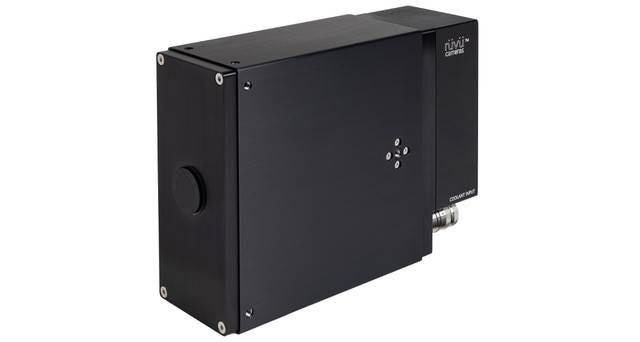A new project will bring together leading UK and Canadian companies to develop the imaging systems to measure qubit states. This is a vital capability for quantum computers to scale.
 The HNü 240 camera, which will be used to 'see' the qubits. Image Credit: Riverlane
The HNü 240 camera, which will be used to 'see' the qubits. Image Credit: Riverlane
Quantum computers are based on building blocks called qubits (quantum bits), but they are not yet powerful enough to unlock any real-world applications. To achieve this, the number and quality of qubits must grow, together with the optical and electronic systems needed to perform operations with qubits and read out the results.
Steve Brierley, CEO and Founder at Riverlane, said: "We need to reach the scale where quantum computers can perform roughly a trillion reliable quantum operations – a threshold we call the 'TeraQuop'. Today’s quantum computers are only capable of a few hundred error-free operations. This project pushes us closer to this TeraQuop goal, but we cannot do this alone – and this is why collaboration with leaders like Infleqtion and Nüvü Camēras is vital, enabling the continued, long-term growth of quantum computing."
In the Scalable Qubit Array Detection for Rydberg Quantum Computers project, quantum computing companies Infleqtion and Riverlane will collaborate with imaging systems specialists Nüvü Camēras to develop systems to greatly improve the readout of the status of the qubits.
The partnership between Infleqtion, Nüvü Camēras and Riverlane will allow for collaborative development in this area of the quantum computing supply chain, helping Nüvü Camēras to develop cameras targeting the next generation of quantum computers, Riverlane to equip its quantum control systems with advanced readout capabilities and Infleqtion to validate the necessary hardware control layer.
There are many qubit types. This project focuses on the neutral atom qubits that Infleqtion's quantum computing platform uses. Accurate knowledge of the state of these atoms is crucial for the quantum computer to perform its operations. This requires high detection sensitivity, accurate measurements, and low latency to enable real-time image processing and faster operations.
Marie-Eve Ducharme, President and Co-Founder at Nüvü Camēras, said: "We’ve been pioneering projects in the space sector for over a decade, but demand for our unique imaging capabilities is exploding in the quantum physics field. This project marks a new milestone for Nüvü Camēras and showcases the transformative potential of our technology in accelerating quantum computing advancements. We are grateful for the contribution of the National Research Council of Canada (NRC-IRAP) to enable this work."
Dr Timothy Ballance, President of Infleqtion UK, said, "Neutral atom quantum computing holds great promise for practical quantum computing through the scalability of atomic qubits compared to alternative methodologies. To truly unlock this scalability, we will need to work hand-in-hand with hardware providers and integrators across the quantum stack to ensure that the sub-systems are interoperable. We are thrilled to collaborate with Riverlane and Nüvü Camēras on this exciting project which will advance high-speed detection of large arrays of atomic qubits."
The project is funded jointly by Innovate UK and the NRC-IRAP through the Canada-UK Commercialising Quantum Technology Programme. Innovate UK is investing £4.2 million in 11 projects to strengthen collaborative research and development through Canada-UK partnerships.